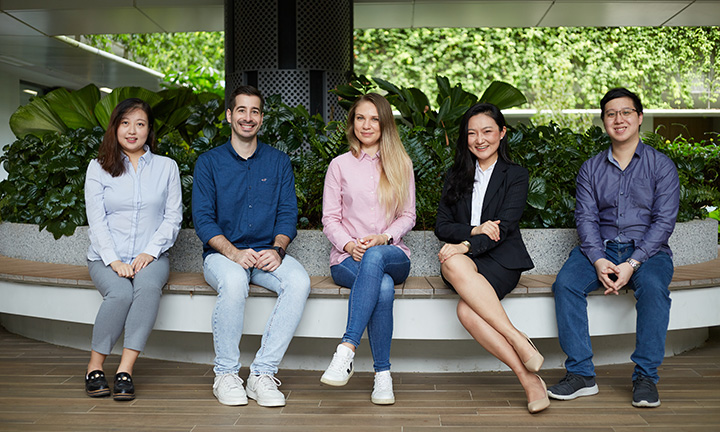MSE offers higher degree programmes by research on a part-time and full-time basis which has a minimum and maximum periods of candidature.
Admission Requirements
- Applicants from overseas universities must have a relevant Bachelor’s degree with at least 2nd Upper Honours or better.
- Applicants from universities in China must have an average grade of 80 or above for the relevant Bachelor’s degree.
- Applicants from universities in India must have 1st Class Honours for the relevant Bachelor’s degree.
- 600 for paper-based test
- 250 for computer-based test
- 100 for internet-based test
Programme Structure & Duration
Programme Duration
| Full-Time | Part-Time | ||
Programmes | Minimum | Maximum | Minimum | Maximum |
Doctor of Philosophy (Ph.D.) | 2 years | 5 years | 3 years | 5 years |
1. Coursework Requirements: Coursework Requirements:
In addition to pursuing independent research, candidates are required to satisfy the following requirements.
The coursework requirement for PhD programme is:
- Ph.D. - 18 Academic Units, with an average grade of B or CGPA of 3.5
For NPGS scholar, please refer to the terms and conditions in your letter of offer, letter of award for Nanyang President's Graduate Scholarship.
2. Ph.D. Qualifying Examination (QE):
Candidates have to undergo QE within 18th and 20th month of the candidature. Students must pass both parts below to confirm their Ph.D. or M.Eng. status:
(i) Graduate coursework with required CGPA, and
(ii) Completion of a report and an oral presentation
3. Thesis & Oral Examination
At the end of the programme, both Ph.D. and M.Eng. are required to write and submit a thesis, which will be examined by internal and external examiners. After which, students have to conduct an oral examination.
All Ph.D. students must have at least 1 accepted first author publication before these submission.
Curriculum
The following modules are offered under the PhD by research program.
- MS6003 - Failure Analysis of Engineering Materials (Civil & Mechanical)
- MS6006 - Failure Analysis in Semiconductor Packaging
- MS6007 - Carbon Markets 101: Strategies for a Low-Carbon Future
- MS6020 - Fundamentals of Intellectual Property in Materials Science & Engineering
- MS6021 - Application of Patents & Registered Design in Engineering Related Industries
- MS6022 - Appreciating IP in Research & Development
- MS7001 - Materials Laboratory Techniques
- MS7014 - Mechanical Properties of Polymers, Biomaterials & Composites
- MS7025 - Biological and Bio-Inspired Materials
- MS7027 - Advanced Methods In Polymer Characterization
- MS7052 - Surface and Colloids
- MS7055 - Magnetic Materials
- MS7056 - Optical Materials
- MS7072 - Principles and Applications of Solid State NMR
- MS7073 - Introduction to Quantum Physics
- MS7074 - Designing Materials for Biomedical Engineering
- MS7075 - Bridging Sustainability & Materials Science: A New Paradigm
- MS7110 - History of Materials
- MS7120 - Inorganic Materials
- MS7130 - Organic Materials
- MS7140 - Properties of Materials
- MS7210 - Processing of Inorganic Materials
- MS7220 - Processing and Processability of Organic Materials (Polymers)
- MS7240 - Modelling of Materials
- MS7310 - Chemical Analysis of Materials
- MS7320 - Physical Analysis of Materials
- MS7330 - Electron Microscopy of Materials
- MS7340 - Crystal Chemistry of Materials
- MS7410 - Nanomaterials
- MS7420 - Biomaterials
- MS7430 - Electronic Materials and Devices
- MS7440 - Environmental and Thermal Degradation of Polymeric Materials
- MS7450 - Advanced Topics in Biomaterials
- MS7460 - Polymer Recycling & Sustainable Polymeric Materials
- MS7470 - Nanostructured Materials for Healthcare
- MS7480 - Polymer Properties, Design & Sustainability
- MS8001 - Graduate Communication Course
- HWG702 - Small Group Teaching
- HWG703 - Graduate English
Please click here to view more detailed information of the postgraduate courses.


